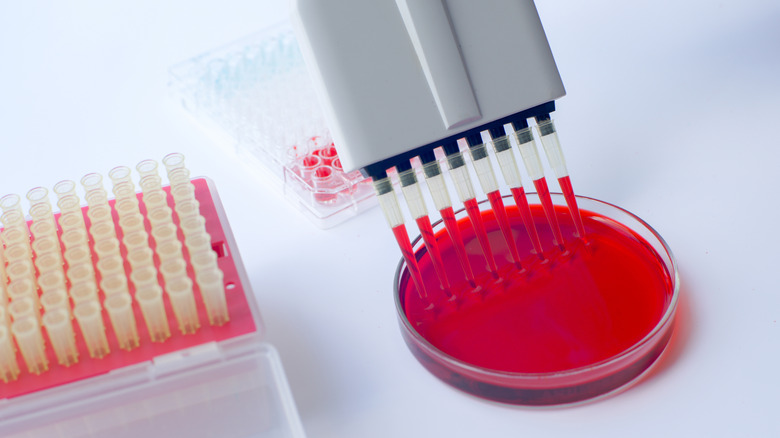Gene Therapy Provides A Promising Treatment For A Type Of Hemophilia
Hemophilia B is a genetic disorder where the protein that's responsible for helping the blood clot is missing or defective, according to the National Hemophilia Foundation. As a result, most patients have to receive regular injections of a clotting factor to make up for the lack of protein, called factor IX or FIX. Now, a new study published in The New England Journal of Medicine shows that a particular type of gene therapy may treat hemophilia B, reducing the need for these injections.
This missing or defective FIX protein is caused by a genetic mutation that's passed down from parents to children, though about one-third of all cases happen due to spontaneous mutation. When this mutation occurs, those with hemophilia B bleed more than the average person, whether internally or externally. The level of FIX protein present determines how severe a person's symptoms are. Normal levels range from 50%-150%, and hemophilia ranges from mild (6%-49%) to severe (less than 1%). Hemophilia is rare, only occurring in about 1 in 5,000 live births, but hemophilia B is four times less common than hemophilia A.
How a new gene therapy may help
The new study found that a new gene therapy may be promising for patients with hemophilia B, reducing their need to regularly inject themselves with a synthetic version of the FIX protein (via U.S. News & World Report). Researchers used a gene therapy called FLT180a, which was found to eliminate the need for regular injections in nine out of 10 participants. The therapy works by using a hollowed-out virus that carries a functional copy of the FIX protein gene, replacing the mutated one.
Twenty-six weeks later, five participants had regular levels of the FIX protein, three had levels that were low but still higher than before, and one had unusually high levels. All participants experienced some side effects, including one who developed a blood clot after receiving a high dose of the therapy. However, the treatment was generally well tolerated. Participants will continue to be monitored for 15 years to determine the long-term safety and efficacy of the treatment.
Lead researcher Dr. Pratima Chowdary, a hematologist at the Royal Free Hospital in London and University College London (UCL) Cancer Institute, said that if hemophilia B patients no longer needed to inject themselves with synthetic FIX protein regularly, this treatment could vastly improve their quality of life.


